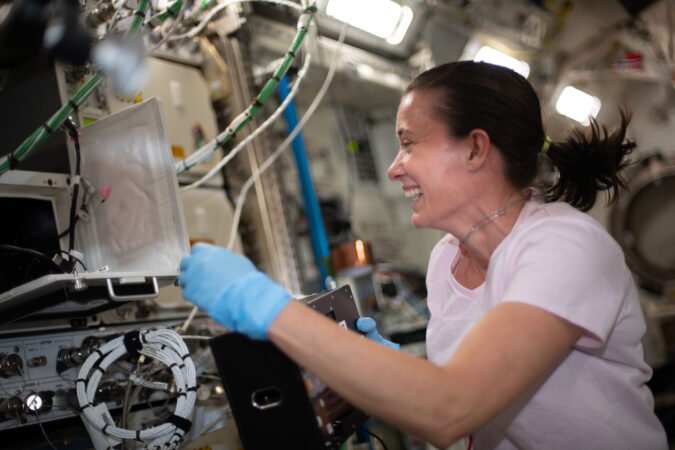Quick Takeaways
-
Retirement Announcement: NASA astronaut Megan McArthur retires after over two decades, concluding a notable career that includes piloting NASA’s SpaceX Crew-2 and interacting with the Hubble Space Telescope.
-
Significant Spaceflights: McArthur spent 213 days in space across two missions, notably serving as pilot for the Crew-2 mission and conducting extensive scientific research during her long-duration stint aboard the ISS.
-
Leadership and Legacy: Beyond her spaceflights, she held key leadership roles at NASA, supporting astronaut training and public engagement as chief science officer at Space Center Houston, contributing to the future of space exploration.
-
Educational Background and Impact: With degrees in aerospace engineering and oceanography, McArthur emphasized the importance of protecting Earth while inspiring future generations of explorers through her work in science and technology.
NASA astronaut Megan McArthur has officially retired, marking the end of an impressive career that spanned over two decades. Throughout her time at NASA, she participated in two spaceflights, logging a total of 213 days in space. Notably, she became the first woman to pilot a SpaceX Dragon spacecraft and the last person to physically interact with the Hubble Space Telescope using the space shuttle’s robotic arm.
In April 2021, McArthur launched as the pilot of NASA’s SpaceX Crew-2 mission. This mission was her second journey into space and her first long-duration stay aboard the International Space Station (ISS). During her 200-day mission, McArthur served as a flight engineer for Expeditions 65 and 66. She conducted critical scientific experiments in human health, materials science, and robotics. These experiments advanced the exploration of the Moon under the Artemis program and helped prepare for future missions to Mars.
Her first spaceflight was in 2009 aboard the space shuttle Atlantis. This mission, STS-125, marked the fifth and final servicing operation for Hubble. As a mission specialist, McArthur played a vital role in capturing the telescope with the robotic arm and supporting five spacewalks for repairs and upgrades.
“Megan’s thoughtful leadership and commitment to science have made a lasting impact,” remarked the acting director of NASA’s Johnson Space Center. The director emphasized that her contributions are pivotal for the future of human space exploration.
In addition to her flight experience, McArthur took on various technical and leadership roles within NASA. From 2019, she served as deputy division chief of the Astronaut Office, where she oversaw astronaut training and ongoing spaceflight operations. She also held the position of assistant director of flight operations for the ISS Program starting in 2017.
Since 2022, McArthur has focused on public engagement as the chief science officer at Space Center Houston. She actively promotes themes of space exploration and strives to increase public understanding of its benefits.
Colleagues praised her unique blend of technical skills and compassion. One described how McArthur represented the best qualities of an astronaut. Her legacy will inspire future explorers she helped train.
McArthur, born in Honolulu and raised in various locations due to her family’s Navy background, earned a Bachelor of Science in aerospace engineering and a doctorate in oceanography. Before her astronaut selection in 2000, she conducted oceanographic research that involved extensive scuba diving.
She shares her life with former astronaut Robert Behnken, who flew a Dragon spacecraft during NASA’s Demo-2 mission in 2020.
Reflecting on her career, McArthur stated, “It was an incredible privilege to serve as a NASA astronaut.” She highlighted the importance of their research in answering scientific questions and addressing engineering challenges. Her experiences have deepened her appreciation for Earth’s beauty and fragility.
With advancements in space exploration and technology development closely tied to human endeavors in space, McArthur’s work has contributed significantly to both current and future projects. NASA’s ongoing mission to explore the Moon and prepare for Mars relies on the legacy of dedicated astronauts like her.
For more information on NASA astronauts and their contributions, visit the official NASA website.
Expand Your Tech Knowledge
Learn how the Internet of Things (IoT) is transforming everyday life.
Stay inspired by the vast knowledge available on Wikipedia.
SciV1

